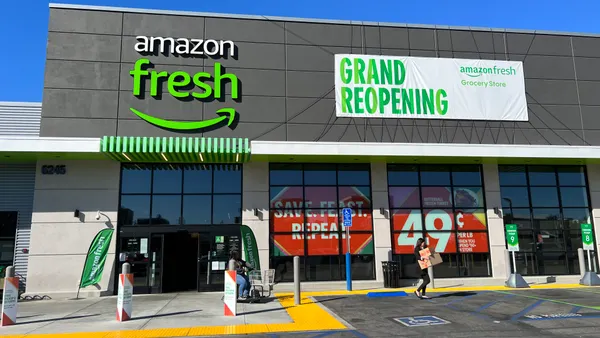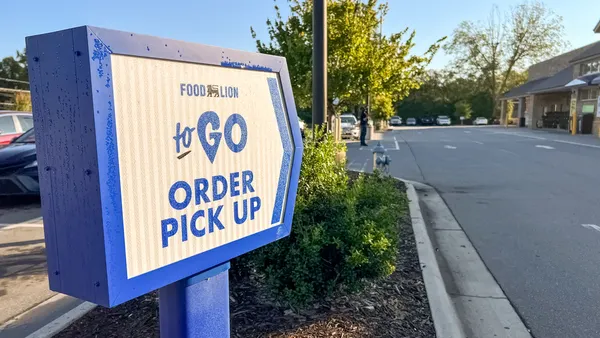Dive Brief:
- Peapod has announced that Selma Postma, who most recently served as general manager of Dutch grocer Albert Heijn Online, will take over as president of the grocery delivery company starting January 1. She will replace Walt Lenz who stepped in as interim president after taking over for Jennifer Carr-Smith last year after her resignation.
- Postma worked at Albert Heijn for nearly two decades where she accelerated online growth to more than 20% annually and launched several initiatives to connect with consumers, including establishing a single sign-on with bol.com, the largest online, non-food retailer in the Netherlands.
- "I'm very excited to see Selma take up this important role at Peapod, one of our great local brands and the leading U.S. online grocer, as we are stepping up efforts to further accelerate U.S. ecommerce growth," Frans Muller, president and CEO of Ahold Delhaize, said in a statement. "Her deep knowledge of food retail and online expertise make Selma the right person to lead Peapod into the next phase."
Dive Insight:
Peapod's decision to add a new president comes as the online grocery wars in the U.S. keep heating up. Peapod, which survived the dot.com implosion nearly two decades ago after being acquired by Ahold in 2001, is facing mounting competition from deep-pocketed competitors like AmazonFresh, Walmart and Instacart. During the most recent quarter, Ahold Delhaize said online sales in the U.S. rose 11.8%, much of that from improving sales at Peapod, but the growth rate slowed from 20% a year earlier. Peapod is still not profitable.
Kantar Consulting estimates Peapod, which posted sales of $833 million in 2017, could see revenue top $1.2 billion by 2022. But by this time, AmazonFresh is forecast by Kantar to surpass Peapod as America's largest online grocery player as it mines further synergies from its $13.7 billion purchase of Whole Foods last year.
Peapod is an important asset in the 24 markets where it's available, and it's increasingly being integrated as the online provider for Ahold Delhaize's brick-and-mortar stores. But the company still hasn't rolled out Peapod to stores in the southeast like Food Lion. Additionally, some analysts have questioned the grocer's slower, more cautious growth path, especially as online sales become a bigger part of the industry. These experts have attributed that to Ahold Delhaize's more conservative nature as a grocer, or the reluctance to shift business away from the more predictable, higher-margin brick-and-mortar business to online where costs are more variable throughout the supply chain.
Peapod has had a steady stream of presidents in recent years, underscoring the challenges the company and its parent have faced in keeping the business competitive. After co-founder Andrew Parkinson left the post in 2015, Jennifer Carr-Smith came on board before resigning two years later. Walt Lenz stepped in as interim president until Postma's announcement.
Postma's experience working in online operations while at Ahold Delhaize-owned Albert Heijn should help, especially if she can bring that same rate of growth to Peapod. In Europe, online innovation and consumer adoption has moved faster than in the U.S., and Postma may be able to implement some valuable strategies she's learned over the years.
But it's uncertain if Postma's background will help Peapod remain the largest online grocer, or if she will struggle with the same challenges that have faced her predecessors. An estimated 20% of all grocery spending — a total of around $100 billion — is expected to come from online shoppers by 2025, according to the Food Marketing Institute and Nielsen.
The solution, in part, could come from Ahold Delhaize spending more to grow and market Peapod in stores where it is in use — a misstep officials at the supermarket chain have acknowledged in the past. But that, of course, risks trimming margins in an industry where they are already low.
Peapod has excelled at investing in backend operations like warehouses, at rolling out a more dynamic pricing structure and working closely with suppliers to promote their products on the website. But these initiatives alone are likely not enough to ward off the pressure coming from Amazon, Instacart and other online players.













